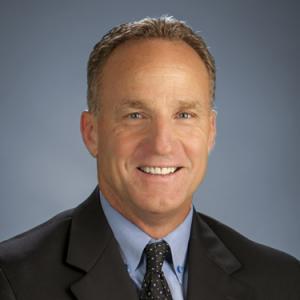Reverse Mortgages 101: A Primer
Education is the key to understanding Reverse Mortgages
IRVINE, CA, UNITED STATES, November 27, 2020 /EINPresswire.com/ -- A Reverse Mortgage is just a loan. It's like all loans -- their are fees to get one, and interest to be paid on it. The biggest difference is that a reverse mortgage does not require a monthly payment to be paid "to" the lender. Instead, the interest on a reverse mortgage can be deferred, or accrued, or "tacked onto" the growing loan balance.
A homeowner who is 62 or older and has considerable home equity can borrow against the value of their home and receive funds as a lump sum, fixed monthly payment or line of credit. Unlike a forward mortgage—the type used to buy a home—a reverse mortgage doesn’t require the homeowner to make any loan payments. It's not too good to be true, because it is just a loan. It's not a free lunch.
For over One Million senior homeowners, a Reverse Mortgage removes financial stress because, unlike other mortgages, no payment is due until the home is no longer the primary residence of the borrower. So borrower(s) are not required to make monthly mortgage payments. (Note: the homeowner must make their normal tax, insurance and HOA dues on time.) Cash flow increases removing the financial stress. Homeowners qualify if they are 62 or older, own their home, occupy their home as their primary residence, and have enough equity to pay off any current mortgages or liens. They also have to demonstrate their ability to pay the property taxes and insurance in the future.
A reverse mortgage contains a "non-recourse" provision, which helps the senior homeowner (and their heirs) to have no personal liability. The borrowers or their heirs are never required to pay more than the fair market value of the home upon repayment of the reverse mortgage. The mortgage is only on the property and is not the liability of any person. So if one stays in their home a long time and the balance due is more than the value of the home, the borrower or their heirs are not responsible for the difference in payment of the debt. The same is true if the property value decreases.
When initiating a reverse mortgage, generally the older the borrower(s) the larger percentage of funds they can access. The Line of Credit grows on the HECM, making more funds available for future use. The proceeds are tax-free and Social Security and Medicare are not affected because it is a loan against the property so the proceeds are not considered income. (Note: Consult a tax advisor and/or legal services for your situation.)
Income, assets and credit score do not determine one’s reverse mortgage interest rate as they do with a conventional mortgage. The initial interest rate on a conventional mortgage will be higher with lower income, assets and/or credit scores. The initial interest rate on the HECM adjustable rate programs (the most common Reverse Mortgage program) is based on the U. S. Treasury CMT (effective December, 2020), plus a margin. The interest rate has often been lower than what one could qualify for on a conventional mortgage. While the interest rate is not impacted by income and credit, they are used for the financial assessment to determine borrower’s ability to pay property taxes and insurance into the future.
There are no restrictions on how the proceeds can be used. Borrowers can stay in their home as long as they choose and access the cash now.
Reverse mortgages help seniors plan for future and maintain lifestyle. The main reason people like reverse mortgages is because they offer seniors a sense of control and comfort with their retirement plans, along with financial freedom and peace of mind.
Are reverse mortgages right for everybody? No. Before getting a reverse mortgage, seniors should meet with an approved FHA lender to receive a "suitability test" to make sure a reverse mortgage is the right loan, for the right person, at the right time, and for the right reason.
Paul E. Scheper, President
Loangevity Mortgage
+19496367242 ext.
email us here



